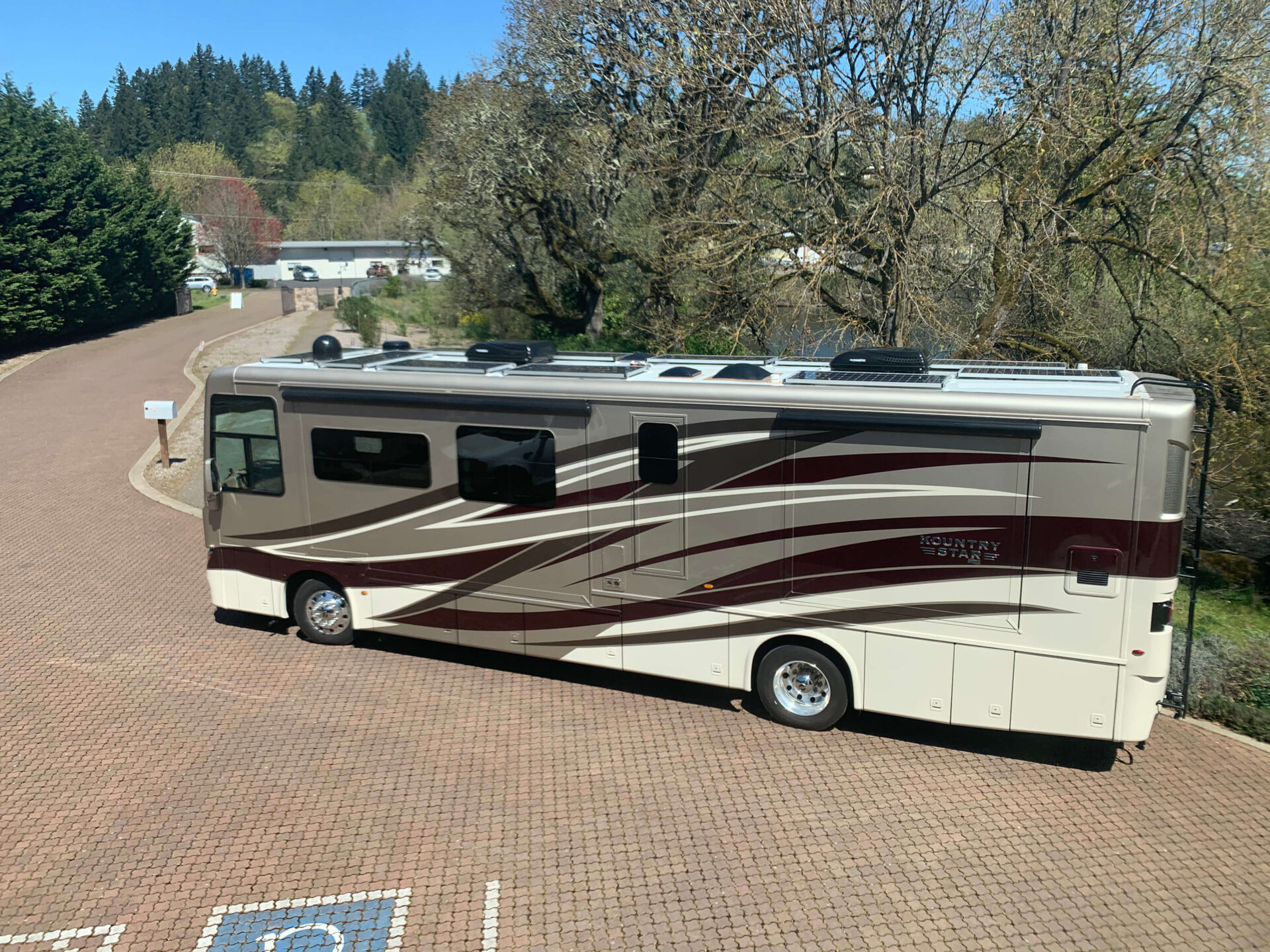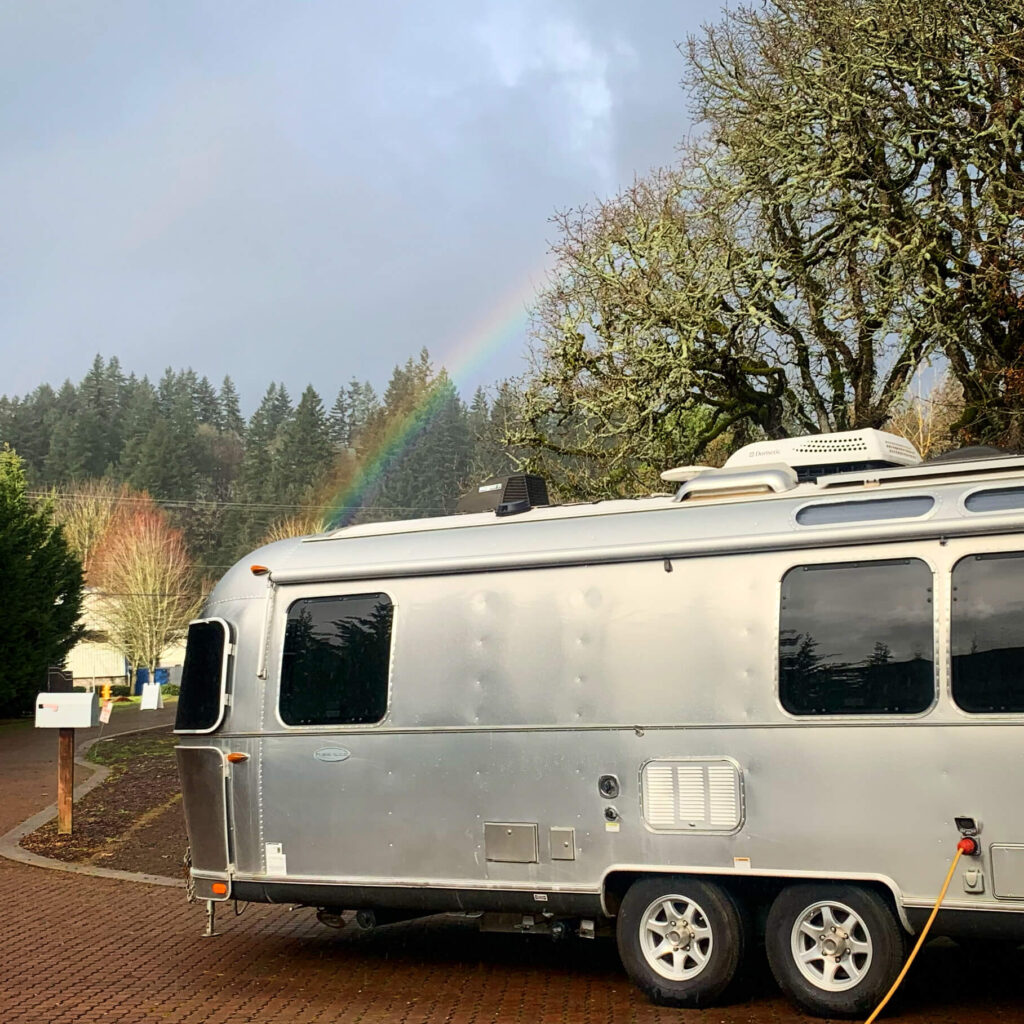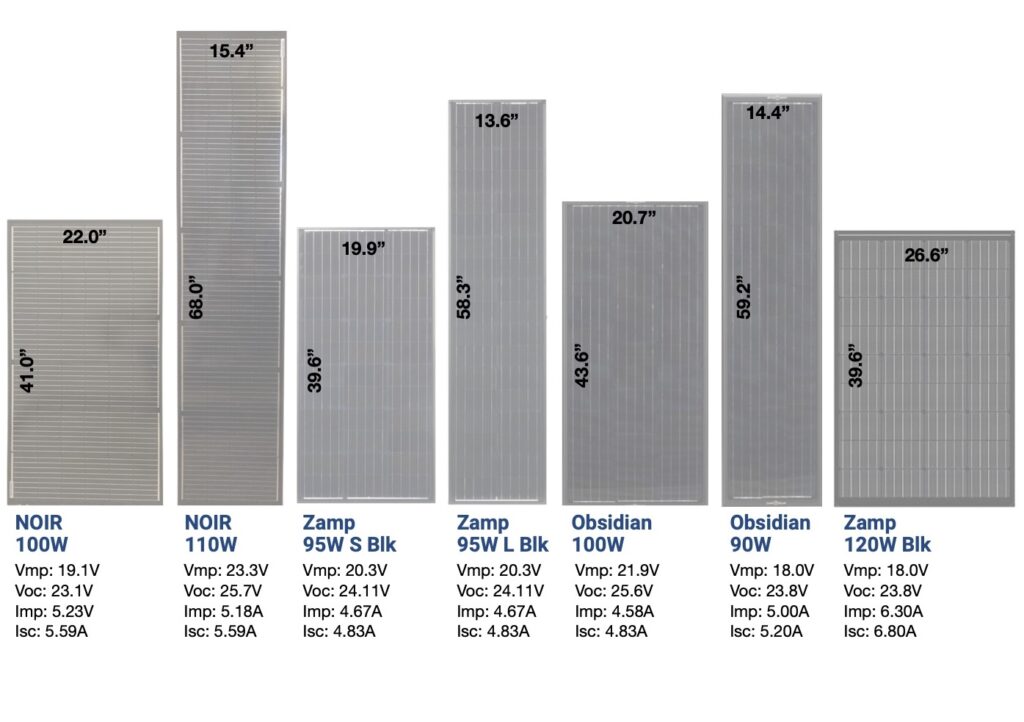Embracing the Solar-Powered RV Lifestyle
Welcome to the world of RV solar systems! Whether you’re a seasoned traveler or a newbie to the RV lifestyle, embracing the power of the sun can transform your journeys. However, navigating the solar-powered path comes with its own set of challenges, especially for beginners. That’s where we, AM Solar, come into play. With our expertise in RV and van solar products and professional installation services, we’re here to guide you through the common pitfalls and help you harness solar energy efficiently and safely.
RV solar systems offer the freedom to explore off-grid locations. But, like any technology, they require a bit of know-how to get the most out of them. As beginners, it’s easy to fall into traps that could lead to inefficiencies or even damage your system. This is precisely why we’ve compiled some of the most common RV solar system mistakes that beginners make.
Our journey today isn’t just about avoiding errors; it’s about empowering you with knowledge and confidence. As experts in the field, AM Solar understands the intricacies of solar systems designed specifically for RVs. From selecting the right panels to ensuring your batteries are in top shape, we’ve seen it all and are eager to share our insights with you.
With our guidance, you’ll be able to make informed decisions, avoid common mistakes, and enjoy the full potential of your solar-powered RV. Let’s embark on this enlightening journey together!
Mistake #1: Choosing the Wrong Solar Panels
One of the most critical steps in setting up your RV solar system is selecting the right solar panels. It’s a decision that sets the tone for the efficiency and effectiveness of your entire system. Many beginners, excited by the prospect of a solar-powered journey, often overlook this crucial aspect, leading to suboptimal performance and, sometimes, costly replacements.
Understanding Your Needs
The first step in avoiding this mistake is understanding your specific needs. How much power do you typically consume during your RV adventures? The answer to this question will determine the size and type of solar panels you’ll need. Remember, someone who utilizes their rig sparingly will have needs that differ vastly from those of a full-time RVer.
Quality Over Cost
At AM Solar, we emphasize the importance of investing in high-quality solar panels. While it might be tempting to opt for cheaper options, remember that quality panels are more durable, efficient, and often come with better warranties. They’re designed to withstand the harsh conditions often encountered during travels, from scorching heat to torrential rains.
Types of Panels
There are various types of solar panels available, each with its pros and cons. Monocrystalline panels are known for their efficiency and longevity, making them a popular choice among RV owners. Polycrystalline panels, while slightly less efficient, can be more cost-effective. AM Solar provides a range of monocrystalline options to fit different budgets and power needs.
Placement and Positioning
Another common mistake is improper placement and positioning of panels. The orientation and angle of your solar panels significantly impact their ability to capture sunlight. At AM Solar, we offer guidance on how to position your panels to maximize sun exposure, taking into account the specific dimensions and layout of your RV.
Compatibility with Your RV
Lastly, it’s crucial to ensure that the solar panels you choose are compatible with your RV’s size and design. Panels that are too large or heavy might pose structural challenges. Additionally, larger panels are prone to more flexing and micro-cracks which can lead to hotspots and early degradation, when on RV roofs. Our team at AM Solar can help you navigate these considerations, ensuring a seamless and safe integration of your new solar panels with your RV.
Overall, the right solar panel choice is pivotal for an efficient and hassle-free RV solar system. By understanding your power needs, prioritizing quality, choosing the right type, and considering placement and RV compatibility, you can avoid this common pitfall. At AM Solar, we’re committed to helping you make informed decisions, offering a range of high-quality solar panels tailored to meet the unique needs of every RV owner.
Mistake #2: Incorrect Installation and Use of Charge Controllers
After selecting the right solar panels, the next crucial step in your RV solar system setup is the correct installation and use of charge controllers. This component might seem small, but it plays a significant role in the efficiency and longevity of your solar power system. Many beginners often underestimate its importance, leading to preventable issues.
The Role of Charge Controllers
A charge controller regulates the voltage and current coming from the solar panels to the batteries. It’s essential for preventing overcharging and damage to your batteries, which can be costly to replace. A well-chosen charge controller also maximizes the efficiency of your solar system, ensuring you get the most out of your solar panels. Looking for guidance on how to select the right charge controller for your solar array? Check out this blog for more information.
Choosing the Right Type
There are two main types of charge controllers: PWM (Pulse Width Modulation) and MPPT (Maximum Power Point Tracking). PWM controllers are more budget-friendly and work well with smaller systems, but MPPT controllers are more efficient for larger setups and varied lighting conditions. At AM Solar, we can help you decide which type suits your specific RV solar system based on your panels and power requirements.
Professional Installation Matters
Improper installation of a charge controller can lead to a host of problems, from inefficient charging to potential safety hazards. This is where professional installation services, like those offered by AM Solar, become invaluable. Our experts ensure that every component of your solar system is correctly and safely installed, giving you peace of mind and the best performance possible.
Understanding Settings and Adjustments
Once installed, understanding how to adjust and monitor your charge controller is vital. Different battery types have different charging profiles, and the controller settings need to be adjusted accordingly. This is often a point of confusion for beginners. We at AM Solar not only install your system, but also provide the necessary guidance on how to manage these settings effectively.
Regular Checks for Optimal Performance
Regularly checking your charge controller for any error messages or signs of malfunction is crucial. Early detection of issues can prevent more significant problems down the road. Additionally, technology updates might mean firmware updates for your controller, something we at AM Solar keep our clients informed about.
Therefore, the right selection, proper installation, and effective use of charge controllers are key to a successful RV solar system. Avoiding this common mistake not only protects your investment but also ensures that your solar system functions at its best. At AM Solar, our commitment to quality service means we’re with you every step of the way, from selection to installation and beyond, ensuring your solar journey is smooth and enjoyable.
Mistake #3: Neglecting Battery Health and Compatibility
The heart of any RV solar system is its batteries. They store the energy you harness from the sun, making it available for use whenever you need it. A common mistake many beginners make is neglecting the health and compatibility of their batteries with their solar system. This oversight can lead to reduced efficiency and even the premature failure of your solar setup.
Selecting the Right Battery Type
The choice between lithium, lead-acid, and AGM batteries is more than just a matter of cost. Each type has its own advantages and requirements. Lithium batteries, for example, are lighter and have a longer lifespan but are more expensive. Lead-acid batteries are more budget-friendly but require regular maintenance. At AM Solar, we provide expert advice on the best battery type for your specific RV solar system needs.
Battery Maintenance is Key
Regular maintenance of your batteries can significantly extend their life and performance. This includes checking for corrosion, ensuring proper fluid levels in lead-acid batteries, and keeping them charged at an appropriate level. Neglecting these simple steps can lead to reduced battery life and efficiency.
Compatibility with Solar System
It’s crucial to ensure that your batteries are compatible with the rest of your solar system, especially the solar charge controller and panels. The capacity and voltage of your batteries should match the output of your solar panels and the specifications of your charge controller. This harmony between components is something we at AM Solar pay special attention to during our consultation and installation processes.
Proper Charging Practices
Overcharging or undercharging your batteries can lead to significant issues. A good battery monitor, which we offer at AM Solar, can help keep track of charge levels and ensure your batteries are being charged properly. This not only extends the life of your batteries but also ensures you’re getting the most out of your solar system.
Temperature Considerations
Batteries are sensitive to temperature extremes. Excessive heat can lead to overheating and damage, while cold temperatures can reduce efficiency. AM Solar advises on and provides solutions for insulating and protecting your battery compartment to maintain an optimal operating environment for your batteries.
Taking good care of your batteries and ensuring they are compatible with your solar system is crucial. By choosing the right type of battery, maintaining them properly, ensuring compatibility with your solar setup, employing proper charging practices, and considering temperature effects, you can avoid this common pitfall. Remember, your batteries are an investment in your RV’s solar system, and at AM Solar, we are here to help you protect that investment.
Mistake #4: Improper Electrical Setup and Safety
The electrical setup of your RV solar system is not just about connecting wires and components. It’s about creating a safe, efficient, and reliable power source for your travels. A common mistake among beginners is overlooking the complexity of the electrical setup, leading to safety hazards and decreased system efficiency. Let’s explore how to avoid these pitfalls and ensure a safe solar experience.
Understanding Your RV’s Electrical Needs
Every RV has unique electrical needs based on its size, appliances, and usage patterns. Overloading your system or mismatching components can lead to serious safety issues like short circuits or even fires. At AM Solar, we assess your RV’s specific needs to design an electrical system that is not just efficient, but also safe.
Correct Wiring and Voltage Management
Using the right type of wiring and ensuring it is correctly installed is crucial. The wrong gauge wire or poor connections can lead to voltage drops and overheating. Understanding voltage requirements and managing them correctly is also key. For instance, ensuring your solar panels and charge controller are matched in terms of voltage is essential for system efficiency and longevity.
Installing Safety Features
Safety features like circuit breakers and fuses are not optional; they are a necessity. These components protect your RV and its occupants from electrical hazards. Circuit breakers prevent overloading of the electrical system, while fuses protect against short circuits. At AM Solar, we ensure that these safety measures are an integral part of every installation we undertake.
Proper Battery Terminals and Connections
Ensuring that battery terminals are correctly connected and insulated is vital. Loose or corroded terminals can cause not only poor performance but also pose a fire risk. Regular checks and maintenance of these connections are part of the routine care we recommend to all RV owners.
Regular System Checks for Peace of Mind
Just like any other aspect of your RV, your solar electrical system needs regular checks. This involves looking for any signs of wear and tear, ensuring all connections are secure, and that safety systems are functioning correctly. At AM Solar, we educate our clients on what to look for and how to perform these checks, ensuring ongoing safety and efficiency.
The electrical setup of your RV solar system is a critical component that demands careful attention to detail and safety. By understanding your RV’s electrical needs, using correct wiring and voltage management, installing necessary safety features, maintaining proper battery connections, and conducting regular system checks, you can avoid common mistakes that compromise safety and efficiency. Remember, at AM Solar, our goal is to ensure that your solar-powered adventures are both enjoyable and safe.
Mistake #5: Overlooking System Monitoring and Maintenance
The final, yet equally crucial aspect of maintaining an efficient RV solar system is the regular monitoring and maintenance of your setup. Often, beginners might set up their solar system and forget that ongoing attention is required to keep it running smoothly. Neglecting this aspect can lead to reduced performance and, in some cases, preventable damage.
The Importance of System Monitoring
A well-functioning RV solar system is not a ‘set it and forget it’ installation. Regular monitoring helps in identifying any potential issues before they become major problems. Tools like battery monitors and solar controllers provide real-time data on the performance of your system. At AM Solar, we provide sophisticated monitoring tools that give insights into your system’s health, allowing you to make adjustments as needed.
Regular Maintenance Routines
Just like any other component of your RV, your solar system needs regular maintenance. This includes cleaning solar panels to ensure maximum efficiency, checking connections for corrosion or wear, and ensuring that all components are functioning correctly. Simple steps like keeping panels clean can significantly impact the amount of power your system can generate.
Responding to Error Codes and Alerts
Modern solar systems, especially those with smart controllers, often provide error codes or alerts to indicate issues. Understanding what these codes mean and how to respond to them is crucial. Whether it’s a minor issue that requires a simple reset or something that needs professional attention, being responsive to these alerts can save time and money in the long run.
Updating System Firmware and Software
As with most modern technologies, solar charge controllers and monitoring systems occasionally need software updates. These updates can improve functionality, add new features, or fix known bugs. Keeping your system’s software up to date is a simple, but essential part of maintaining your solar setup’s efficiency and longevity.
Seeking Professional Help When Needed
While many aspects of solar system maintenance can be DIY, there are times when professional help is necessary. Whether it’s complex electrical issues or firmware updates, AM Solar’s team of experts is always ready to provide assistance and advice. We believe in empowering RV owners with knowledge, but also understand the importance of professional installation when required.
Overall, overlooking the monitoring and maintenance of your RV solar system is a mistake that can lead to decreased performance and potential system failures. By engaging in regular system monitoring, routine maintenance, responding promptly to alerts, keeping your software updated, and seeking professional help when necessary, you can ensure the longevity and efficiency of your solar setup. Remember, your journey with AM Solar doesn’t end with installation; we’re here to support you through every mile of your solar-powered adventures.
Additional General RV Mistakes to Avoid
RVing offers an unparalleled sense of freedom and adventure, but it also comes with its own set of challenges, especially for those new to this unique lifestyle. Some common general mistakes can not only dampen the RV experience but also pose significant risks. Understanding these pitfalls is key to ensuring a safe and enjoyable journey.
Towing Too Much Weight
One of the most common and dangerous mistakes is towing beyond the RV’s weight capacity. Overloading your RV affects its handling and braking, increasing the risk of accidents. It also puts undue strain on the engine and transmission, leading to potential mechanical failures. Always check the maximum towing capacity of your RV and ensure you stay within limits, taking into account all your gear, water, and other supplies.
Poor Weight Distribution
Even if you’re under the weight limit, how you distribute that weight is crucial. Poor weight distribution can lead to handling problems, making the RV difficult to control, especially at higher speeds or in windy conditions. Heavier items should be stored low and as close to the center of the RV as possible. Regularly check and adjust the distribution of your load to maintain balance.
Not Winterizing Properly
For RVers who travel or live in their vehicle during colder months, failing to winterize the RV can lead to significant issues, such as frozen and burst pipes. Winterizing involves draining water systems, insulating pipes, and sometimes adding antifreeze. It’s a crucial step to protect your RV from the harsh winter elements.
Effects of Bad Driving
Aggressive or inattentive driving in an RV can have more severe consequences than in a regular vehicle. Sharp turns, sudden stops, or high-speed driving can not only cause accidents, but also damage the RV’s structure and internal systems. Maintaining a steady, moderate speed, and being extra vigilant about road conditions and traffic can help prevent these issues.
In essence, responsible RV ownership and operation require an awareness of these common mistakes. Proper planning, attention to detail, and a commitment to safe driving can ensure your RV adventures are both memorable and secure.
Navigating the Solar-Powered Journey with Confidence
As we come to the end of our guide on the top RV solar system mistakes to avoid for beginners, it’s clear that the journey into solar-powered RV living is both exciting and intricate. Each step, from choosing the right solar panels to regular system maintenance, plays a pivotal role in ensuring a smooth and enjoyable experience. At AM Solar, our goal is to empower you with the knowledge and tools you need to avoid these common mistakes and make the most of your solar investments.
Your Partner in Solar-Powered RVing
At AM Solar, we are more than just a provider of solar products and installation services. We are your partner in this journey. Our commitment to quality service, expert advice, and ongoing support is unwavering. We understand the nuances of solar-powered RV living and are dedicated to helping you navigate them with ease and confidence.
Contact Us Today to Get Started
As you embark or continue on your solar-powered RV adventures, remember that the road is not just about reaching a destination; it’s about enjoying a sustainable, efficient, and self-sufficient journey. We encourage you to explore the benefits of solar power, armed with the knowledge to avoid common mistakes and the assurance that AM Solar is here to support you every step of the way.
Whether you’re just starting out or looking to enhance your current RV solar system, we at AM Solar are here to help. Connect with us for personalized advice, quality products, and professional installation services. Let’s harness the power of the sun together, allowing for off-grid adventures. Happy travels!




